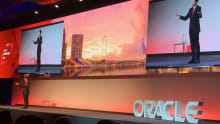How should leaders think about humanizing talent technology

Let’s Talk Talent Read similar articles

With the race for artificial intelligence technologies shaping business models, work and workforce, there is a growing focus on how to engage, empower and celebrate the contribution of the human workforce.
In the book “Human + Machine: Reimagining work in the age of AI”, the authors Paul Daugherty and H. James Wilson assert that the rise of these advanced technologies is going to make humans more human i.e., they will not be doing the work that machines are good at – repetitive and routine work that can be far more efficient when done by machines. But as the technologies grow, there will be a greater need to collaborate, innovate and think creatively.
In this context, how should HR leaders begin to think about their own HR systems in supporting their employees in a changing world of work? Here are a few pointers:
1. Focus on delivering a consistent experience – How you make your employees feel can have a significant impact on their work. While a whole range of new initiatives – right from wellness strategies, to career advancements are being employed by companies, the key to success is to be able to deliver a consistent experience across geographies and job groups.
2. Enable collaboration: Research by Accenture shows that 79 percent of executives agree that the workforce of the future will be aligned to “projects” rather than job roles. Business leaders should reflect on whether their current HR systems enable or is capable of enabling collaboration, as joint goals, team work and performance are going to become increasingly important.
3. Personalize: Technologies are uniquely capable of personalizing at scale. Given the role of advanced technologies and data can play in integrating personal preferences, and hobbies to purpose, companies can empower and inspire employees to take on workplace challenges
4. Support a non-hierarchical work system – The digital economy is going to be defined by breaking hierarchies at work. According to one research study, “Instead of hierarchical command and control units, companies should resemble interconnected networks.” As the demand for specialist talent and gig workers who will define their own job grows, it will be up to the leadership to identify technologies that can support the mandate for the future of teamwork.
5. Multi skills era – Experts opine that the average worker in today’s economy is more likely to work not just multiple jobs but try multiple careers. Is your HR technology capable of supporting the new skills era? As emerging technologies take on mundane work, employees will need to continuously skill and re-skill themselves.
To empower your human resources, the technologies that you employ need to make employees feel empowered, it needs to be less about control and must be able to free up “employee creativity”. Making work meaningful will be the biggest puzzle that will animate HR leaders in the world of work. And a key question that leaders need to ask themselves is whether their HR systems and technologies are aligned to the shared sense of purpose and meaning or is it disengaging employees?
(Click here to know more about the evolving role of HCM and the innovations in HR, powered by Oracle.)






